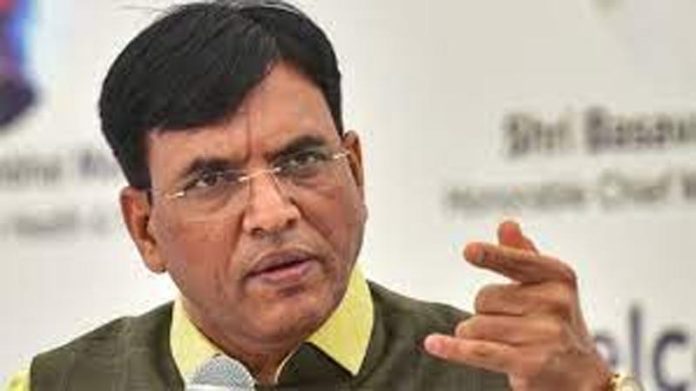Child sex ratio
NEW DELHI, Oct 20:
Union Health Minister Mansukh Mandaviya on Friday cautioned stakeholders on the potential misuse of modern technologies for prenatal sex selection that can exacerbate gender imbalances.
Mandaviya made the remarks at the 29th meeting of the Central Supervisory Board (CSB) on October 18 that reiterated the nation’s commitment to addressing gender discrimination against girls and women.
The primary concern discussed at the meeting was the declining child sex ratio (CSR) and sex ratio at birth (SRB) in the country, indicative of the ongoing battle against sex-based discrimination leading to sex selection/ determination followed by pre-birth elimination.
Addressing the gathering, the Union Health Minister expressed optimism about the nation’s journey towards gender equality.
Citing the latest Sample Registration Survey (SRS) report of 2020, Mandaviya said, “The data revealed a commendable three-point improvement in Sex Ratio at Birth from 904 in 2017-19 to 907 in 2018-20.”
Importantly, 12 out of 22 surveyed states have demonstrated improvement, underlining the combined efforts of the states in implementing the Pre-conception and Pre-natal Diagnostic Techniques (Regulation and Prevention of Misuse) Act, 1994 (PC&PNDT Act) and the Beti Bachao Beti Padhao scheme, the Minister said.
The latest SRS report indicated that the gender gap has witnessed a two-point decrease in 2020 compared to a five-point gap in 2015.
Ten states have effectively reversed the gender gap, positively impacting female survival rates, he said.
Mandaviya also flagged concerns over the challenges posed by modern technologies, such as IVF procedures, the Non-Invasive Prenatal Test (NIPT), and compact diagnostic equipment, which facilitate sex selection under the pretext of family balancing.
“These technologies, despite their positive medical applications, could be misused and exacerbate gender imbalances,” he stated.
Under the PC&PNDT Act, the central government has the responsibility to combat the misuse of medical technologies for sex determination and selection.
Mandaviya urged that this Act should not be used to harass innocent doctors by anyone.
The CSB members gathered to reaffirm their commitment towards enforcement of the Act, and creating an enabling environment for the girl child in the country.
The minister lauded the proactive measures taken by states like Haryana, Rajasthan, and Tamil Nadu in this regard. He commended their innovative strategies, including sting operations and informer schemes, to combat gender-biased sex selection.
While celebrating these efforts, the Union Minister called upon other states and Union territories to follow suit and contribute significantly to this critical demographic issue. (PTI)
He expressed his optimism on the move to provide dedicated financial support under NHM to bolster states and UT’s ability to effectively enforce the PC&PNDT Act.
“The financial support is being channelled to establish Pre-natal Diagnostic Techniques (PNDT) cells at both state and district levels. Additionally, support is being provided to intensify Information, Education, and Communication (IEC) activities related to this cause,” he said.
Union Health Secretary Sudhansh Pant said the Centre was at the forefront of advancing the rights and well-being of women and children, emphasising their protection, development, and participation holistically.
Till July 2023, reported cases under the PC&PNDT Act have risen to 3563 from 2048 in March 2015.
Convictions secured under the Act have increased from 271 to 713 during this period. Licenses of 145 convicted doctors have been suspended by their respective state medical councils, the ministry said.
To strengthen the legislation, the Ministry has introduced 11 amendments in the rules over the years under the PC&PNDT Act, to further reinforce its implementation. (PTI)


